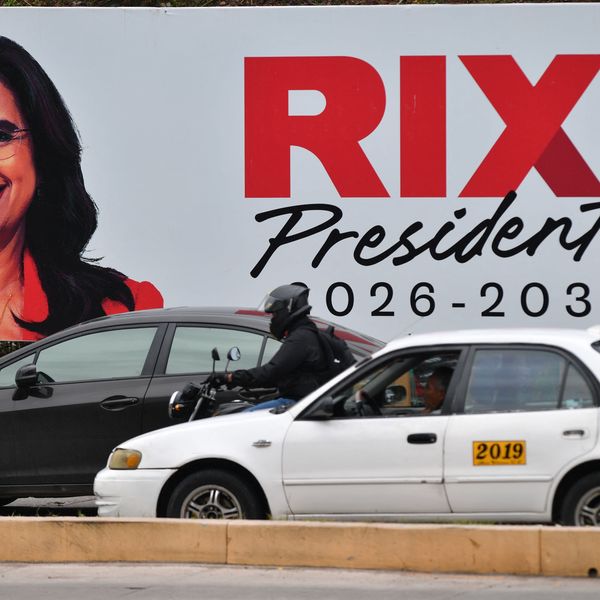Revealing the country's increasing resistance to austerity, nearly half of Spanish voters support the rising left-wing Podemos Party's de facto leader Pablo Iglesias for Prime Minister, according to a poll published Friday by radio station Cadena Ser.
If an election for Prime Minister were held right now, Iglesias would receive 44 percent of the votes, the survey showed--almost twice as much as Spain's current president, Mariano Rajoy of the Popular Party, who would net 23 percent.
The poll also found that 27.5 of Spaniards would vote for the Podemos Party in the upcoming general elections, set to take place on or before December 20, 2015.
Political analysts have noted that the unexpected ascent of Podemos (translated "We Can") may have broken Spain's traditional two-party structure, a phenomenon particularly noteworthy given that the party was formed just over a year ago ahead of elections for European Parliament in which it captured a surprising five of the Spanish delegation's seats.
Podemos built its platform on measures that fight against skyrocketing public debt, austerity cuts, and forced privatization programs. Such policies have been on the rise across Europe since the financial crash in 2008, but have sparked mass protests in numerous countries including Spain, Greece, Italy, and the U.K.
"It is clear that in Spain, as well as Greece, there is a tendency to reject the economic policies adopted by Europe," Eric Toussaint, a political scientist at the University of Liege and president of the Belgian arm of the Committee for the Abolition of Third World Debt, told Al Jazeera on Thursday. "There is a push on the left side of the political spectrum for radical solutions, which will lead towards a certain rupture with the capitalist system."
Many of Podemos' supporters are those who previously voted for the Popular Party, but others are switching allegiances from left-wing groups like Socialist Workers' Party and United Left, as well as the more centrist UPyD and Ciudadanos--all of whom would take less than 6 percent of the vote if it were held today, the poll showed.
Yet more support--36 percent--came from voters who had never cast an election ballot before.
Cadena Ser's survey comes shortly after another poll conducted by the newspaper La Razon found the Popular Party still in the lead among voters, with the Socialist Workers' Party in second place and Podemos in third.


